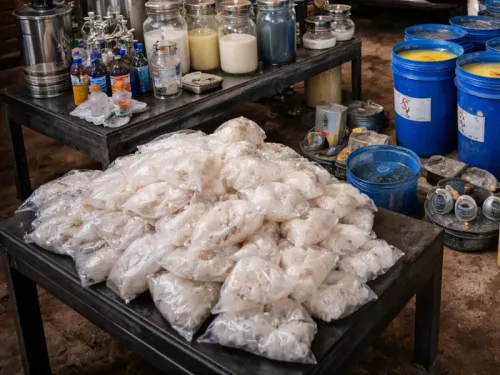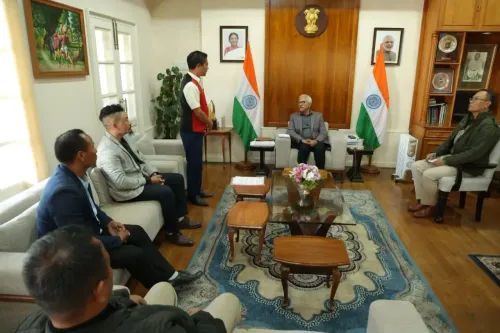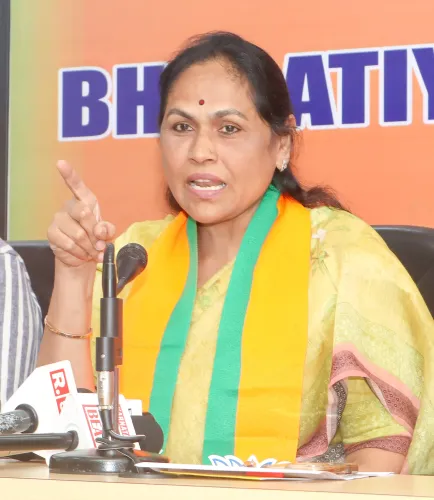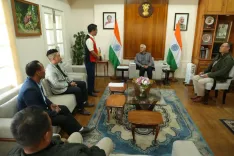How is India Mobilizing Global Forces Against Digital Piracy?
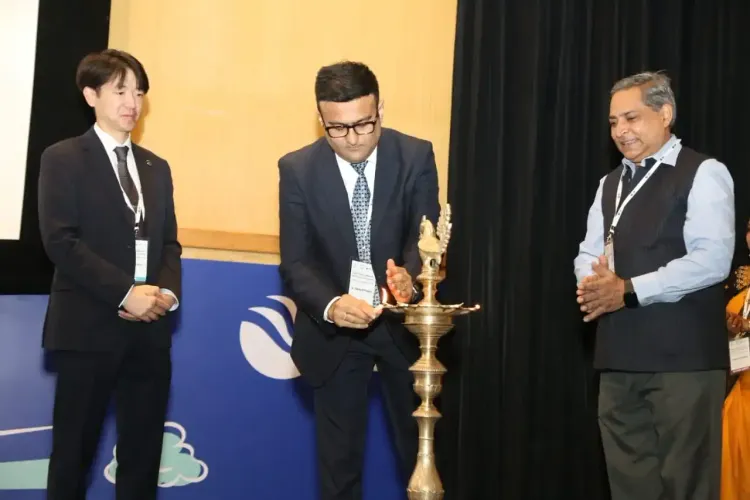
Synopsis
Key Takeaways
- Digital piracy is linked with organized crime, necessitating collective action.
- A proactive strategy and public awareness are vital in combating piracy.
- Data science is essential for tracking and disrupting piracy networks.
- Strong partnerships between law enforcement, academia, and industry are crucial.
- Training investigative personnel is necessary to enhance response capabilities.
Hyderabad, July 10 (NationPress) Digital piracy has evolved beyond mere unauthorized content; it represents an escalating front in organized cybercrime that requires unified action.
This was the pivotal message from the Central Bureau of Investigation (CBI) during the two-day event titled “Securing the Future of Creativity,” which took place at the Indian School of Business (ISB) in Hyderabad on July 9-10, 2025. S Veeresh Prabhu, Joint Director of the CBI, inaugurated the conference by cautioning that digital piracy is intricately linked with criminal syndicates and necessitates a synchronized response from law enforcement, academia, and industry.
He stressed the importance of a proactive approach, enhancing investigative skills, and raising public awareness to counter the threat.
The conference, co-hosted by CBI, ISB, and INTERPOL, featured opening remarks from Prabhu and Professor Manish Gangwar, Executive Director of the ISB Institute of Data Science.
Gangwar outlined the vital role of data science in identifying and disrupting digital piracy networks.
In his keynote address, Rajeev Sharma, Director General of Police, Rajasthan, underscored the urgency, urging law enforcement to bolster technical capabilities and cultivate stronger collaborations with academic and business sectors.
Over the course of two intensive days, the event brought together senior law enforcement officials, cybercrime analysts, legal experts, researchers, and media representatives.
Topics ranged from the increasing connection between piracy and malware to the financial impact on India's online video platforms and the legal complexities of prosecuting digital piracy cases.
Specialized sessions addressed matters such as music piracy and INTERPOL’s international strategies for dismantling online piracy structures.
Industry leaders and global experts highlighted that technology alone cannot resolve the piracy crisis.
Speakers consistently emphasized the necessity of training investigative personnel and initiating public education programs to foster a culture of digital accountability. INTERPOL presented global best practices, reaffirming the effectiveness of a united, transnational response.
The conference concluded with a shared agreement: safeguarding creative ecosystems in the digital era requires more than enforcement—it calls for robust collaboration, innovative thinking, and ongoing public engagement.
As piracy becomes more advanced, India's strategy must also adapt, integrating knowledge, technology, and policy to defend creative expression and uphold economic integrity.


